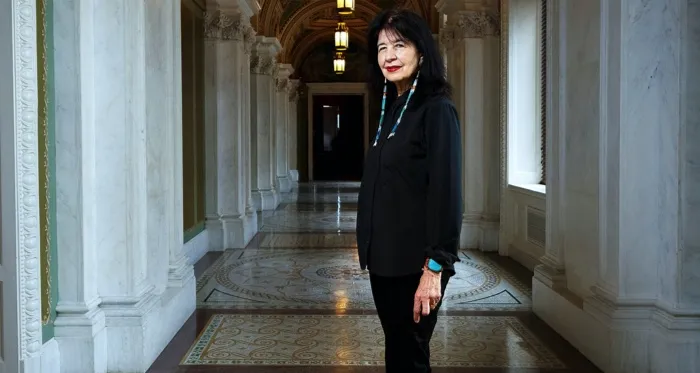
What Does a Poet Laureate Do?
On April 30, 2020, Joy Harjo was appointed to her second term as the U.S. Poet Laureate. She is the nation’s 23rd Poet Laureate, the first from Oklahoma, and the first Native American to serve in this position. The position is a great honor, but the news made me wonder: What does a Poet Laureate do, exactly?
Per The Library of Congress, the Poet Laureate originated in 1936 when Archer M. Huntington created an endowment for the “maintenance of a chair of Poetry of the English language in the Library of Congress.” The title was originally “Consultant in Poetry to the Library of Congress,” and changed to “Poet Laureate Consultant in Poetry” in 1986.
The Library of Congress doesn’t ask a lot of their Poet Laureates, largely “to afford each incumbent maximum freedom to work on his or her own projects while at the Library.” Poets need time to contemplate life, beauty, existence, and language. They have to go off into their corners to battle with their inner demons and lash them into lines and stanzas. The Library of Congress knows this, so they keep the official duties to just three items:
- Give a reading or presentation to inaugurate their term.
- Select and introduce the two Witter Bynner Fellows at their Library of Congress reading.
- Give another reading or presentation to close their term.
Those are the official duties. Unofficially, however, is where the Poet Laureate shines. In the case of Joy Harjo, her primary focus has been on “Living Nations, Living Words: A Map of First Peoples Poetry.” She is working with the Library of Congress’s Geography and Map Division to create “a web mapping application geared toward storytelling, to showcase contemporary Native American poets from across the country.” The Library of Congress is using this project to create a new collection in their American Folklife Center featuring biographies and recordings of Native American poets.
Previous Poets Laureate have spearheaded their own projects while serving the Library of Congress:
- Billy Collins established the website Poetry 180 to provide students one poem per day during a regular school year.
- Robert Hass created the Watershed Environmental Poetry Festival.
- Juan Felipe Herrera was a perpetual overachiever during his two terms, creating La Casa de Colores, The Technicolor Adventures of Catalina Neon, Wordstreet Champions and Brave Builders of the Dream, and Laureate Lab—Visual Wordist Studio in his hometown.









